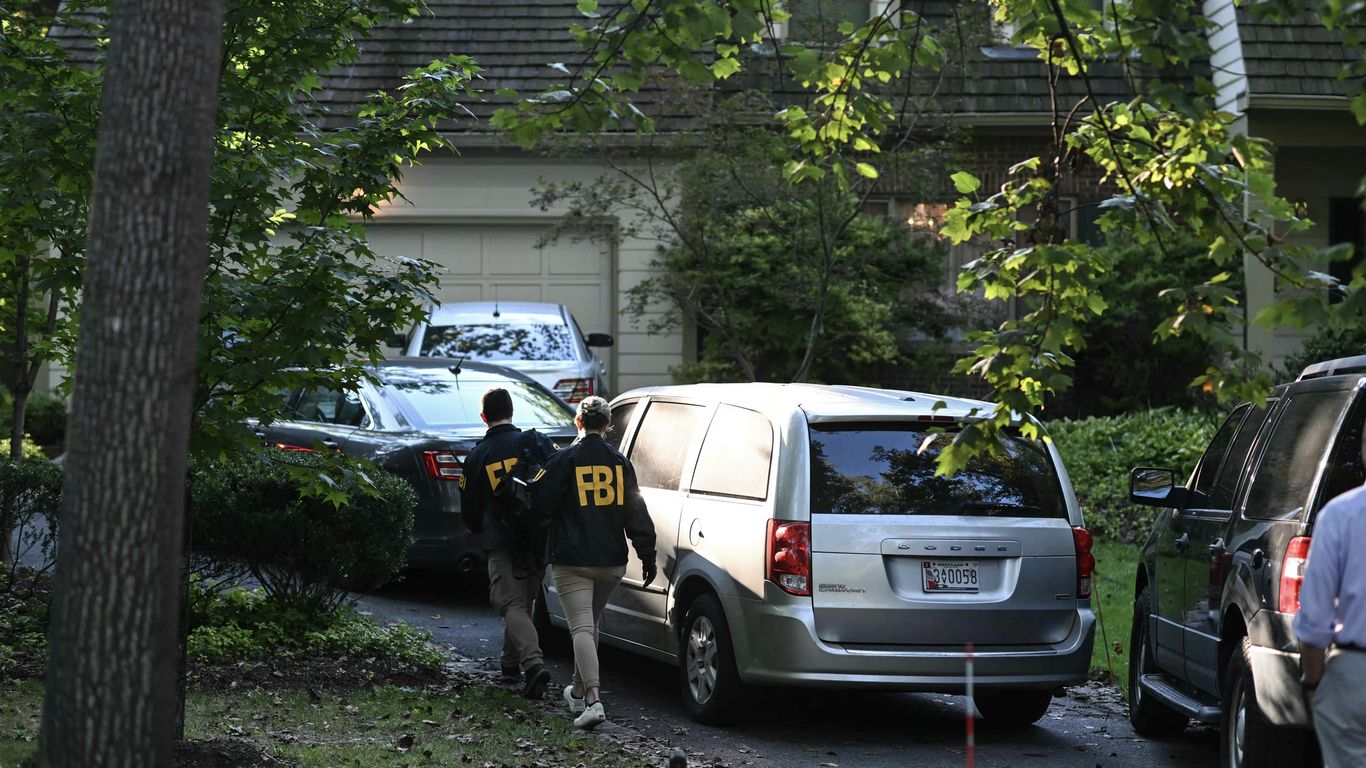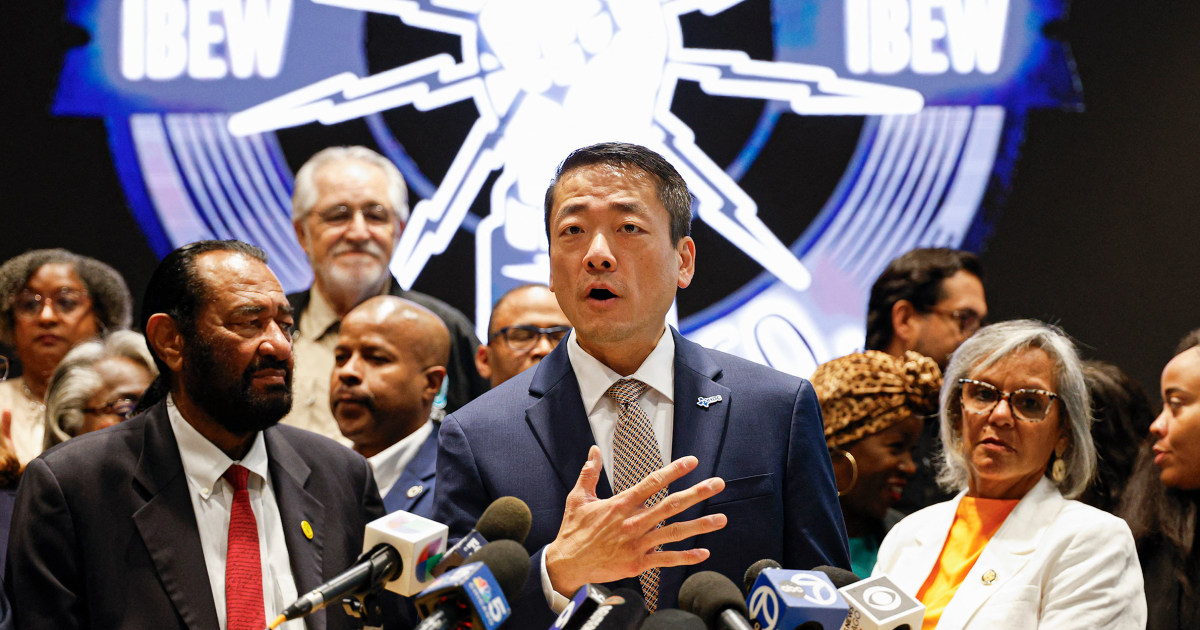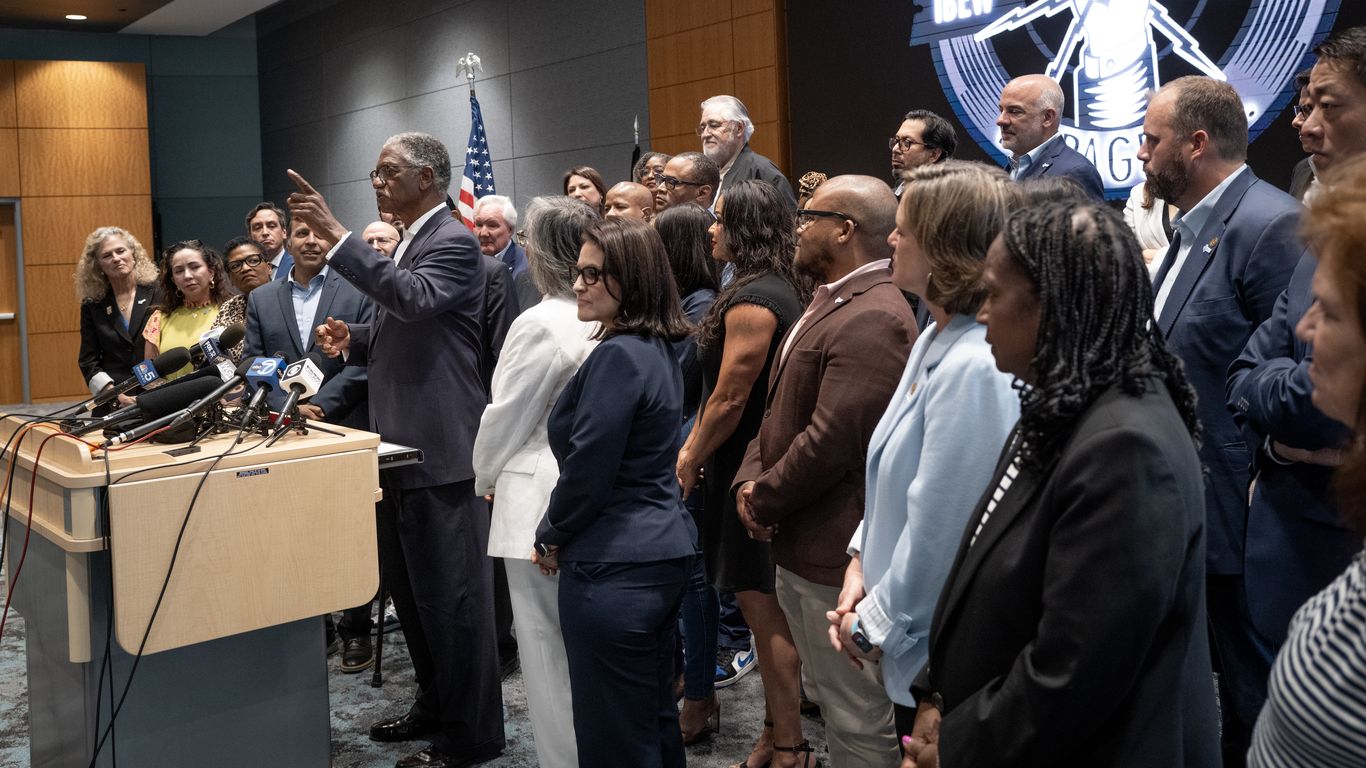FBI Raid on Former National Security Advisor's Home Shakes Quiet Maryland Town

Introduction
The quiet, suburban town of Bethesda, Maryland was shaken when news broke of an FBI search on the home of John Bolton, the former National Security Advisor to President Trump. The incident, which was dubbed as the 'militarization of politics', caused a stir in the community and attracted national media attention. Robert Hill, a resident of Bethesda, was so intrigued by the event that he called in sick to work just to witness it firsthand.
Key Details
The situation in Bethesda was a stark contrast to its usual bucolic atmosphere. The streets were filled with news vans and reporters, and the normally quiet neighborhood was bustling with activity. The FBI search was reportedly related to the ongoing impeachment inquiry into President Trump, with Bolton being a key witness. This event highlighted the growing tension between politics and law enforcement, and the impact it has on small communities like Bethesda.
Impact
The militarization of politics not only affects larger cities but also has a profound effect on smaller, more peaceful communities. The sudden intrusion of the FBI into a quiet neighborhood like Bethesda has caused unease and fear among its residents. The event also sheds light on the power and reach of the media, as the entire nation was drawn to this once unknown town. This incident has sparked conversations about the role of law enforcement in politics and the impact it has on society as a whole.
John Bolton is an American attorney and government official known for his long career in Republican administrations and a consistently hardline approach to U.S. foreign policy. Born on November 20, 1948, in Baltimore, Maryland, he graduated summa cum laude from Yale University (B.A.) and later earned his J.D. from Yale Law School[2]. Bolton began his public service in the early 1980s under President Ronald Reagan, holding positions at the U.S. Agency for International Development and as Assistant Attorney General (1985–1989)[1]. He served as Assistant Secretary of State for International Organization Affairs under President George H.W. Bush (1989–1993)[1][2].
During the George W. Bush administration, Bolton was appointed Under Secretary of State for Arms Control and International Security (2001–2005), where he supported U.S. withdrawal from the Anti-Ballistic Missile Treaty and opposed the International Criminal Court[1]. His nomination as U.S. Ambassador to the United Nations was controversial; facing bipartisan Senate opposition, he was installed via a recess appointment in August 2005, serving until December 2006[1][3]. At the UN, Bolton was known for his blunt, confrontational style, famously remarking that the Secretariat building “has 38 stories. If it lost 10 stories today, it wouldn’t make a bit of difference”[3]. His tenure was marked by tensions with UN officials and allies, and he achieved few major diplomatic breakthroughs[3].
Bolton returned to private life as a commentator, notably for Fox News, where he advocated aggressive stances on Iran and North Korea[3]. In April 2018, President Donald Trump appointed him National Security Advisor, a role he held until September 2019[1][5]. During this period, Bolton was a vocal advocate for a tough line on Iran, Venezuela, and North Korea, but his tenure ended abruptly amid reported policy disagreements with the president[1].
Since leaving government, Bolton has remained a prominent conservative voice, authoring books and frequently commenting on foreign policy. His memoirs, including “The Room Where It Happened,” have been notable for their critical insider accounts of the Trump administration. Bolton continues to influence foreign policy debates through media appearances and writings, maintaining relevance as a staunch advocate for assertive American global leadership[6]. The Federal Bureau of Investigation (FBI) is a premier law enforcement agency in the United States, renowned for its role in protecting the nation from domestic and international threats. Founded on July 26, 1908, as the Bureau of Investigation, it was initially tasked with addressing land fraud and corporate malfeasance under President Theodore Roosevelt[1][2]. Over time, its mandate expanded significantly, particularly with the passage of the Mann Act in 1910, which allowed federal jurisdiction over certain moral offenses[1][4].
### History and Evolution
The FBI underwent significant transformation under J. Edgar Hoover, who became its director in 1924. Hoover implemented strict hiring standards and enhanced operational capabilities, transforming the agency into a robust investigative force[1][4]. The FBI's name was officially changed to the Federal Bureau of Investigation in 1935[5][6]. Throughout its history, the FBI has faced challenges, including concerns about potential abuses of power, but it has consistently demonstrated its value in national security and law enforcement[3][4].
### Key Achievements
The FBI has been instrumental in combating various crimes, including white-collar offenses, civil rights violations, and national security threats. Notable achievements include its role in enforcing the Espionage Act during World War I and its investigations into organized crime throughout the 20th century[2][4].
### Current Status
Today, the FBI is a sophisticated agency with over 37,100 employees, including special agents and professionals in various fields such as intelligence analysis and cybersecurity[5]. It operates in 55 field offices across the U.S. and has an international presence in 81 nations[5]. The FBI continues to evolve, addressing emerging threats like cybercrime and terrorism while maintaining its commitment to justice and integrity.
### Notable Aspects
The FBI is known for its rigorous training programs at the FBI Academy in Quantico, Virginia, and its advanced forensic capabilities at the FBI Laboratory. Its work in business and technology includes Discover related stories and their connections to this article Explore connected events with detailed insights and relationships Key entities mentioned across connected events Discover patterns and trends across related stories CNN review finds dozens of FBI witness interviews missing from Epstein files, fueling questions about transparency. Trump escalates pressure on Iran with sanctions, talks, and possible military options as negotiations resume. Trump administration unveils an aggressive crackdown on healthcare fraud, freezing Minnesota funds and expanding Medicare/Medicaid integrity nationwide. Exploring White House push for Israel to strike Iran first, amid worries of retaliation, casualties, and political calculations. Live updates on Donald Trump's state of the union address, highlighting border security, a booming economy, and executive orders.About the People Mentioned
John Bolton
About the Organizations Mentioned
FBI
🔗 Connected Events Overview
📊 Quick Insights
📅 Connected Events Timeline
👥 People Involved in Connected Events
Connected through:
🏢 Organizations & Products
🏢 Organizations
🛍️ Products
💡 Connected Events Insights
🔥 Trending Topics
Trending Blogs in Politics

Missing FBI Records Spark Epstein Files Controversy

Trump Administration Escalates Iran Pressure: Sanctions, Diplomacy, and Military Contingencies

Federal Crackdown on Medicaid Fraud: Minnesota First, Nationwide Expansion

White House Strategy: Israel Might Strike Iran First

Trump's Bold State of the Union: Live Updates on a Secure Border and Booming Economy














